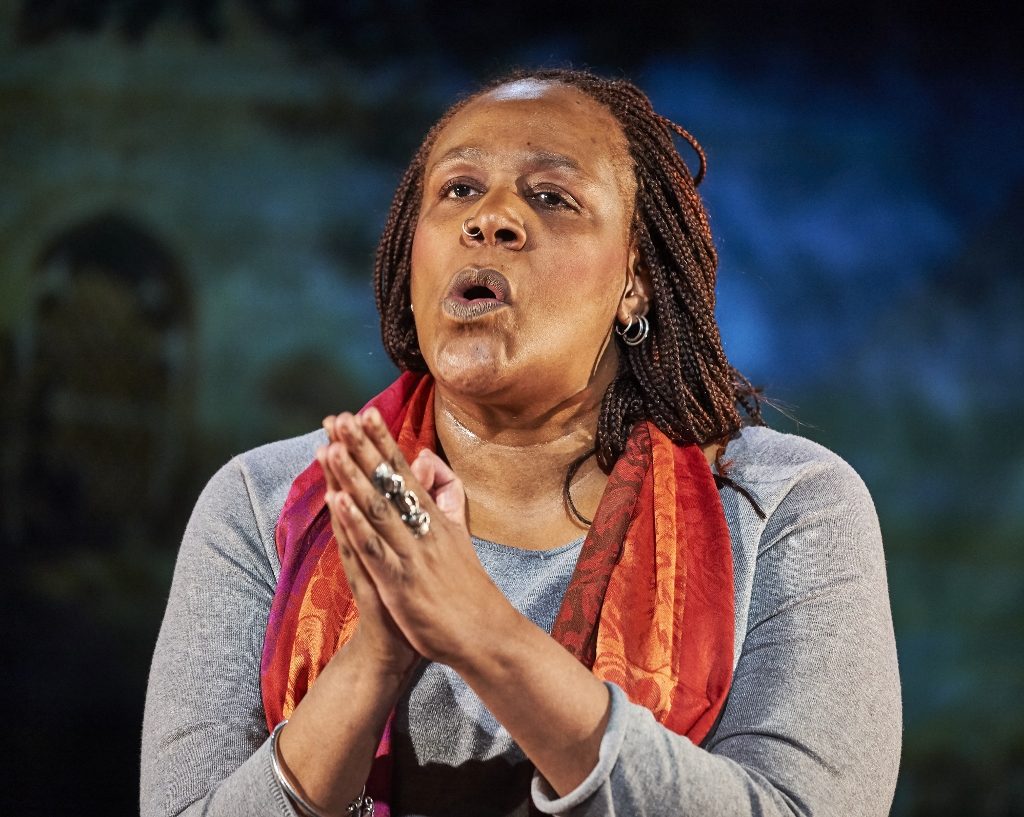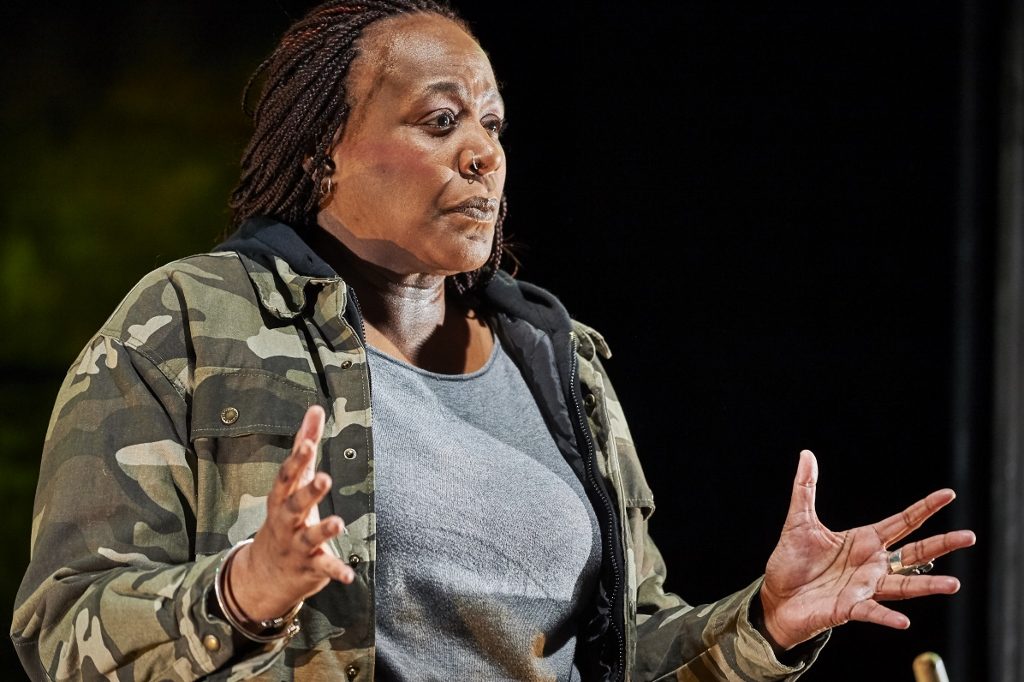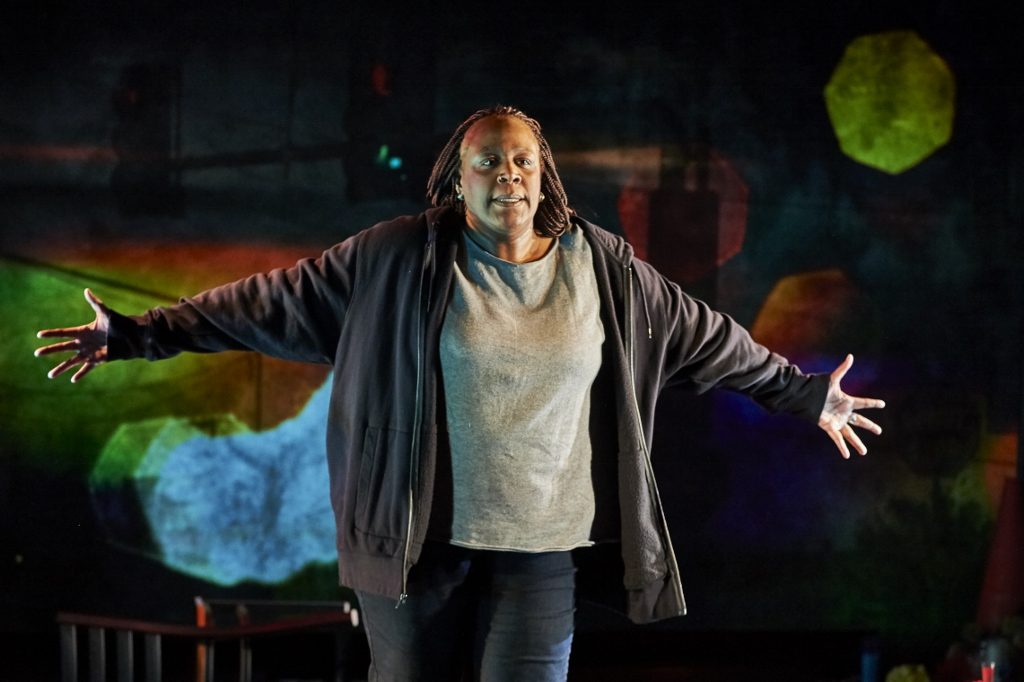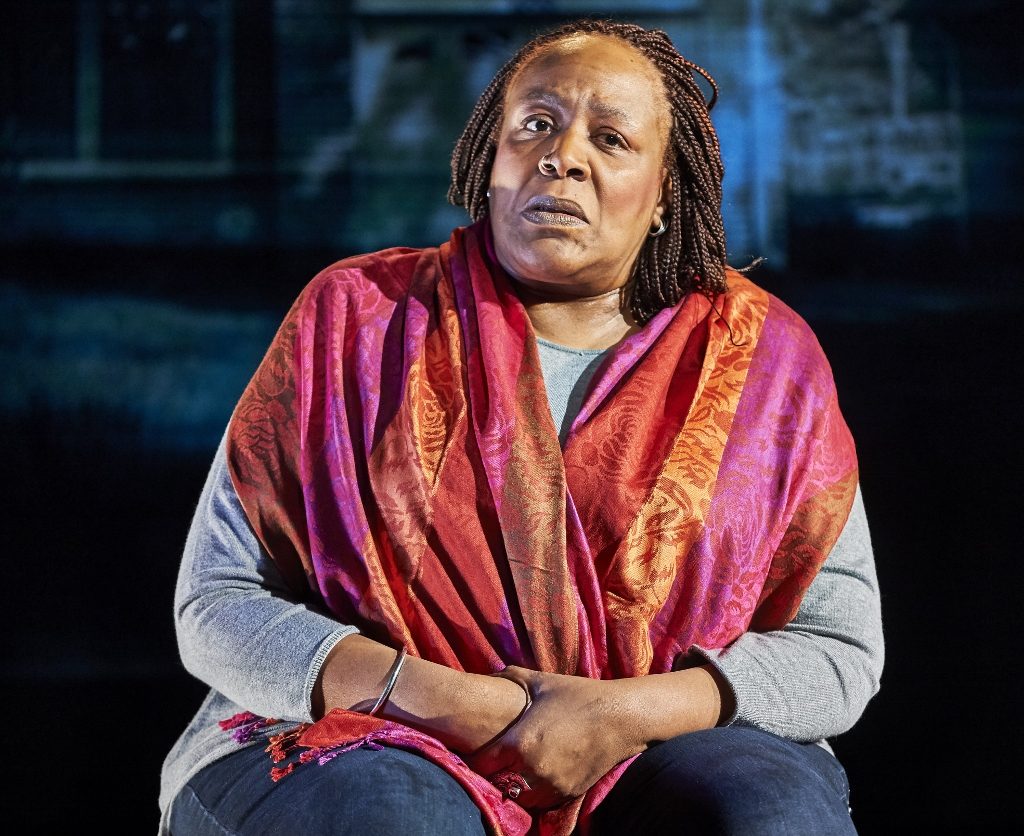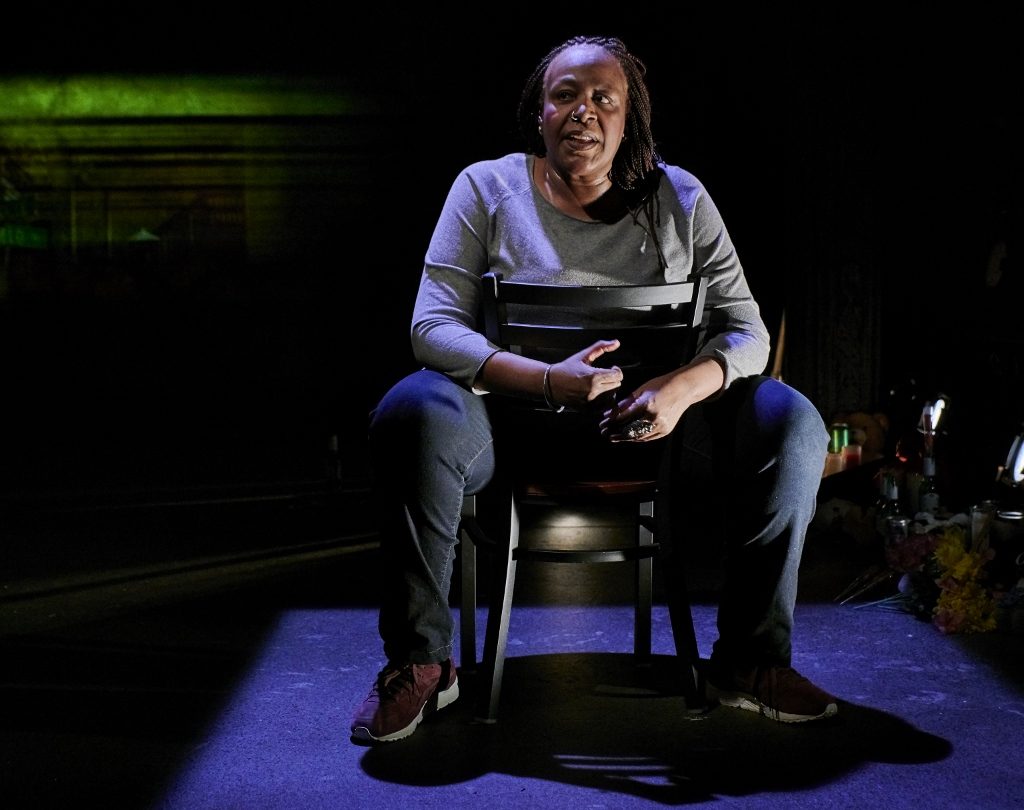A GLOBAL FLASHPOINT BECOMES
A THEATRICAL FLASHFLOOD
Until the Flood lasts only 70 minutes. But its concentrated running time delivers a devastating drama. A ton of truth-telling now on tour, this 2016 one-act is the creation of actor, poet and oral historian Dael Orlandersmith. She becomes the partisans, witnesses, survivors and, above all, inhabitants of a town that epitomizes America’s divides — Ferguson, Missouri.
Based on well-targeted, in-depth interviews with its residents, this boundary-breaking piece — commissioned by The Repertory Theatre of St. Louis — creates a collage and context for a brutal watershed and defining event. The dark matter at its heart is the 2014 execution of 18-year-old Michael Brown, black, unarmed and shot six times (purportedly in a struggle over a gun) for stealing cigars, by 28-year-old cop Darren Wilson. Neither in Missouri nor in the painfully similar case of Eric Garner, who died that year in New York of a police choke hold, did a grand jury indict the white cops who killed them.
Nightly riots followed. The national press gave this semi-medieval St. Louis suburb unforgiving scrutiny. Three months after his act of “self-defense,” Wilson quit the force. A too-typical suburb of St. Louis was exposed as a white-dominated, antebellum throwback. Seen in perverse polarities, Ferguson was a hate-filled hamlet where black citizens were nickel-and-dimed to death by voter suppression, arbitrary fines, inexcusable bonds set for minor offenses, and a diabolically busy school-to-prison pipeline.
Orlandersmith offers a deeper, truer and more compassionate verdict. It’s performed behind a stage apron depicting an impromptu cross, candles, and other memorabilia honoring Michael Brown. In this un-safe zone where fear (camouflaged as the need for self-defense) clashes with broken trust, Orlandersmith transforms herself into a telling cross-section of townsfolk caught in the troubles.
We meet characters whose diversity transcends contradictions: A black teenager more interested in art history than rap and mocked by white cops for supposedly stealing a book on Leonardo da Vinci; a barber who resents liberals for reducing African-Americans to “victims” until proven otherwise; a 17-year-old black rapper who’s into his own “flow” and can’t waste time on hate; a white racist, spitting out the “N-word” and sicking his kindly kid on blacks who supposedly disrespected him; a black minister who refuses to discriminate any more than did the Creator; and, at the beginning and end, a black septuagenarian who patiently explains the “sundown laws” that made outsiders illegal after dark and decries the legacy of self-hate that becomes bigotry’s unwitting enforcer.
The quick and deeply moving work ends with Orlandersmith’s own contribution; it’s a short poem that deliberately confounds Missouri’s “black n blue boys/broken men” of either race, rich or poor, loved or not, as simultaneous perpetrators and sufferers. Our sheer humanity, Orlandersmith implies, subsumes the petty differences that mean folks use to false ends.
These confessions imply but never impose indictments on a town that now has a black police chief and city council members pledged to end racial profiling, police brutality, and debtors’ prisons. Yes, Orlandersmith incarnates the ignorant hate that killed Brown — and, in Chicago, Laquan McDonald, among many black boys. She also embodies the bridge-builders who refuse to give Jim Crow a second life.
As South Pacific’s wonderful song “Carefully Taught” carefully teaches, racism grows from the outside in. False dread, unfettered stupidity, and sheer selfishness inject it into innocence: Cumulatively and cruelly, we pay for prejudice — at least “until the flood.”
photos by Robert Altman
Until the Flood
Goodman Theatre
Owen Theatre, 170 North Dearborn
ends on May 12, 2018
for tickets, call 312.443.3800 or visit Goodman
for more theater info, visit Theatre in Chicago

